#duc de bourbon
Text
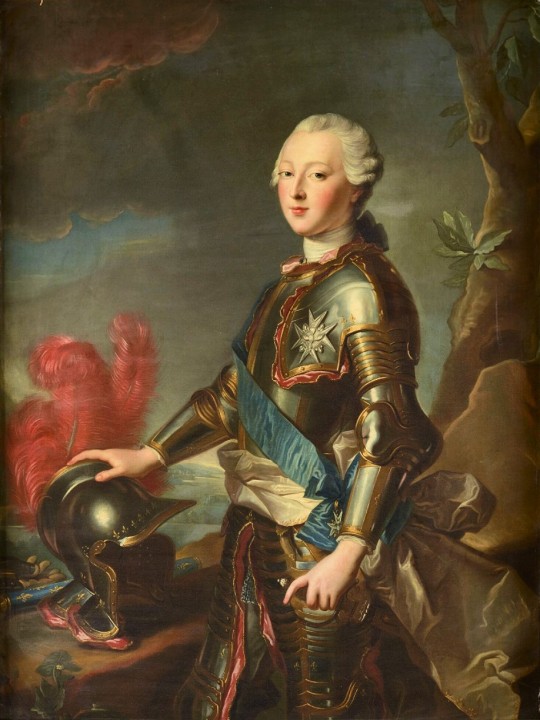
Portrait of Louis V Joseph, Prince of Condé (1736-1818), son of Louis Henri, Duke of Bourbon. After Nattier.
#royaume de france#maison de bourbon#bourbon condé#louis v joseph#duc de bourbon#duché de bourbon#prince du sang#kingdom of france#house of bourbon#in armour#jean marc nattier#royalty
5 notes
·
View notes
Photo

Louis II Duke of Bourbon (1337-1410).
#royaume de france#maison de bourbon#louis ii#duc de bourbon#equestrian portrait#fleur de lis#louis de bourbon#on horseback#in armour
19 notes
·
View notes
Text

Jeanne Rongier (Mâcon 1852 - París 1929).
19 notes
·
View notes
Text

The Execution of the Duke of Enghien by Jacques Onfroy de Bréville
#duke of enghien#art#jacques onfroy de bréville#napoleonic#napoleonic wars#french#france#royal#royalty#nobility#history#louis antoine de bourbon#house of bourbon#duc d'enghien#prince of condé#job#europe#european#dog#dogs#pug#mohiloff
48 notes
·
View notes
Text
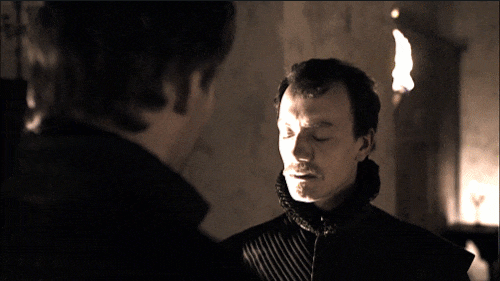

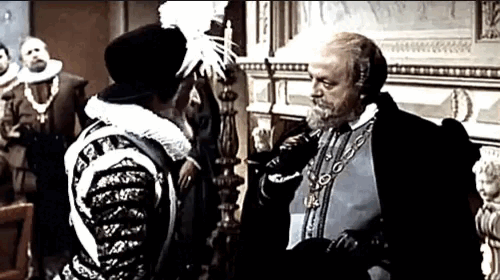

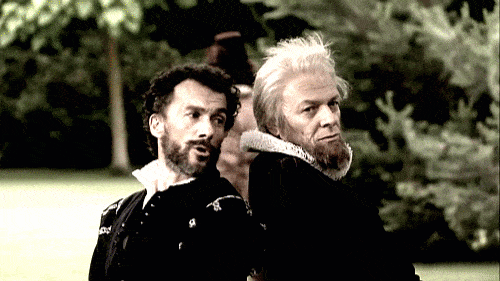
Henry IV of France | Maximilien de Béthune, Duke of Sully
Henri 4 (2010)
La Guerre des trônes, la véritable histoire de l'Europe: S3, Ep1 (2019)
Vive Henri IV, vive l'amour! (1961)
La caméra explore le temps: Qui a tué Henri IV ? ou L'Énigme Ravaillac
Ce jour-là, tout a changé: L'Assassinat d'Henri IV (2009)
#henry iv of france#henri iv#henry of navarre#henri de bourbon#duc de sully#duke of sully#maximilien de bethune#sorry for the quality#making gifs is still so difficult to me#but i really love these guys#sadly there is not much content about them#history of france#french history
8 notes
·
View notes
Text
"Dying of fright"
On occasions, the king gave a clear indication of how he expected his courtiers to react, which could set the tone for their subsequent behaviour. In his memoirs, Saint-Simon recounts an episode involving his father and Louis XIII in which the sovereign caught the duc in the act of writing a letter to his friend, Roger de Saint-Lary de Bellegarde, who had suffered banishment and only narrowly escaped the block for his involvement in the revolt of 1631-1632 following the Day of Dupes. The horrified Saint-Simon was asked to whom he was writing, and the king then demanded to read the letter before declaring imperiously:
"I do not find it misplaced… that you write to your friend, even though he is in disgrace, because I am confident that you will say nothing that is untoward; but what I find totally reprehensible is that you fail to show the respect you owe to a duc et pair; because he is exiled, you have not addressed him as Monseigneur."
Louis XIII promptly tore up the missive and told the duc, who "was dying of fright for fear of worse for having written to a man in profound disgrace, and who had no hope of being restored to the king's good favour", to rewrite it and to address it correctly!
Saint-Simon, père et fils, venerated the memory of Louis XIII, who was the principal source of their grandeur, and there is no reason to question the general tenor of this tale. If the king's right to punish was undisputed, he was well aware that he could not easily force others to share his displeasure.
Julian Swann- Exile, Inprisonment and Death- the Politics of Disgrace in Bourbon France
#xvii#julian swann#exile inprisonment and death: the politics of disgrace in bourbon france#louis xiii#claude de rouvroy de saint-simon#louis de rouvroy de saint-simon#roger de saint-lary de bellegarde#duc de bellegarde#lmao#i have no problems with you writing to a man i banished and almost had executed#but i have a huge problem with you not addressing him properly!!#so punctilious
9 notes
·
View notes
Photo

Charles-Ferdinand d'Artois, duc de Berry by Francois Gerard. The son of Charles X, he was assassinated by a Bonapartist in 1820. His son was the last descendant of Louis XV.
1 note
·
View note
Text
The Funeral of Claude of Lorraine, Duc de Guise – July 1, 1550
The Funeral of Claude of Lorraine, Duc de Guise – July 1, 1550
16th Century Italian Funeral procession in Padua 1583
“My son, my friend, if Fortune does me the wrong of taking him [her husband] from me, I will do with the honest people that I have here the best that I can, and you shall be advised of everything. For, my friend, after God, I can have no hope and consolation save in you and my other children. I cannot be without grief so great that in truth I…
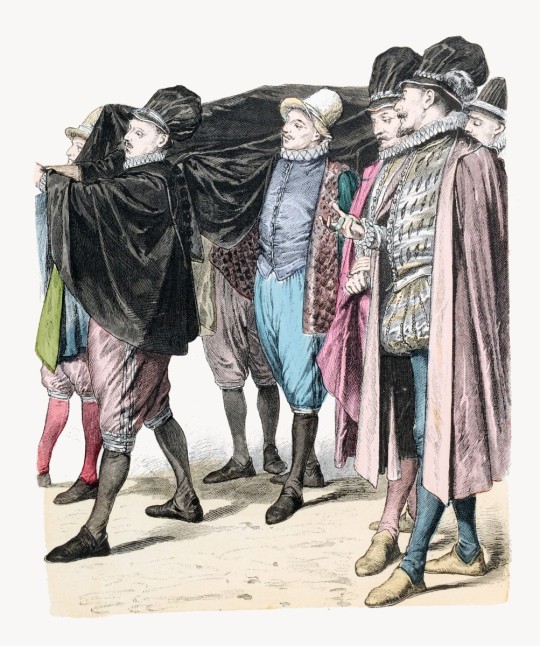
View On WordPress
#Antoinette de Bourbon#Cardinal Jean de Lorraine#Claude of Lorraine#Duc de Guise#Duchess of Guise#Duke of Guise#Francois de Lorraine#French history#Henri II#King of France#Renaissance history
0 notes
Text
Message de Louis de Bourbon, duc d’Anjou, suite à l’assassinat de la jeune Philippine :
C’est avec une profonde tristesse et un juste sentiment d’horreur que nous avons appris ce nouveau drame qu’est l’assassinat de la jeune Philippine. La Princesse Marie Marguerite et moi-même assurons la famille de notre soutien et de nos prières dans cette épreuve auquel chacun peut s’identifier. Quels parents peuvent rester insensibles à cette vie ôtée, à ce crime odieux ?
Malheureusement, une fois de plus, la justice de notre pays apparaît dans toute sa déliquescence et toute son incurie. Jamais dans l’histoire de France ni d’aucun autre pays, un État a aussi peu appliqué les règles de la plus élémentaire justice alors qu’il en a les moyens. Des peines peu ou pas appliquées laissent les pires criminels dans la nature, et leur donnent un sentiment d’impunité. Quand les Français auront-ils le droit de goûter à la quiétude si nécessaire à l’épanouissement des peuples ? Il est temps d’œuvrer ensemble au retour d’un État de justice.

13 notes
·
View notes
Text
THIS DAY IN GAY HISTORY
based on: The White Crane Institute's 'Gay Wisdom', Gay Birthdays, Gay For Today, Famous GLBT, glbt-Gay Encylopedia, Today in Gay History, Wikipedia, and more …
September 8



1157 – Richard The Lion Heart, or Cœur de Lion, King of England, born (d.1199); Known to most from Sir Walter Scott's "Ivanhoe," as a young man Richard fell in love with the king of France, Philip II. Richard was an educated man who composed poetry, writing in French and Limousin. He was said to be very attractive; his hair was between red and blond, and he was light-eyed with a pale complexion. He was apparently of above average height, but as his remains have been lost since at least the French Revolution, his exact height is unknown.
Boswell's translation of King Henry II's journal records that Richard (then the Duke of Aquitaine) "remained with Philip, the king of France, who so honored him for so long that they ate every day at the same table and from the same dish, and at night their beds did not separate them. And the king of France loved him as his own soul; and they loved each other so much that the king of England was absolutely astonished at the passionate love between them and marveled at it."
Before 1948, no historian appears to have clearly affirmed that Richard was homosexual. Historian Jean Flori, however, has analysed the work of contemporary historians, and reported that they quite generally accepted that Richard was homosexual. However, not all historians agree regarding Richard's sexuality; but Flori analyzed the available contemporaneous evidence in great detail, and concluded that Richard's two public confessions and penitences (in 1191 and 1195) must have referred to the "sin of sodomy". There are contemporaneous accounts of Richard's relations with women, and Richard acknowledged one illegitimate son, Philip of Cognac. Flori thus concludes that Richard was probably bisexual, but he does agree that the contemporaneous accounts do not support the allegation that Richard had a homosexual relation with King Philip II of France.
The historian John Gillingham has suggested that theories that Richard was homosexual probably stemmed from an official record announcing that, as a symbol of unity between the two countries, the kings of France and England had slept overnight in the same bed. He expressed the view that this was "an accepted political act, nothing sexual about it; ... a bit like a modern-day photo opportunity."
Richard did later marry somewhat unenthusiastically. Upon death his widow had to sue the pope for recognition as widow, as Richard hadn't bothered to make his marriage official.


1504 – Michelangelo's David is unveiled in Florence.


1621 – Louis II De Bourbon, Prince De Condé, French General, born; Known as "the Great Condé," this greatest of French generals was an intimate of Moliere, Racine, Boileau, and La Bruyère. He also had the misfortune to be acquainted with "Madame"—the gossipy wife of Philip, duc d'Orleans—who spread the word about Conde's amours with his own sex.
Condé, a clever gent, went to great pains to establish a reputation as a great womanizer, but between the sharp tonge of Madame and the word of the well-known courtesan, Ninon de Lenclos, who was in a position to know, Condé fooled no one with his boasts.


1873 – Alfred Jarry (d.1907) was a French writer born in Laval, Mayenne, France, not far from the border of Brittany; he was of Breton descent on his mother's side. Best known for his play Ubu Roi (1896), which is often cited as a forerunner to the theatre of the absurd, Jarry wrote in a variety of genres and styles. He wrote plays, novels, poetry, essays and speculative journalism. His texts present some pioneering work in the field of absurdist literature.
A precociously brilliant student, Jarry enthralled his classmates with a gift for pranks and troublemaking. At the lycée in Rennes when he was 15, he led of a group of boys who devoted much time and energy to poking fun at their well-meaning, obese and incompetent physics teacher, a man named Hébert. Jarry and a classmate wrote a play they called Les Polonais and performed it with marionettes in the home of one of their friends. The main character, Père Heb, was a blunderer with a huge belly; three teeth (one of stone, one of iron, and one of wood); a single, retractable ear; and a misshapen body. In Jarry's later work Ubu Roi, Père Heb would develop into Ubu, one of the most monstrous and astonishing characters in French literature.
At 17 Jarry passed his baccalauréat and moved to Paris to prepare for admission to the École Normale Supérieure. Though he was not admitted, he soon gained attention for his original poems and prose-poems. A collection of his work, Les minutes de sable mémorial, was published in 1893. That same year, both his parents died, leaving him a small inheritance which he quickly spent.
Jarry had meantime discovered the pleasures of alcohol, which he called 'my sacred herb' or, when referring to absinthe, the 'green goddess'. A story is told that he once painted his face green and rode through town on his bicycle in its honour (and possibly under its influence).
Drafted into the army in 1894, his gift for turning notions upside down defeated attempts to instill military discipline. The sight of the small man in a uniform much too large for his less than 5-foot frame—the army did not issue uniforms small enough—was so disruptively funny that he was excused from parades and marching drills. Eventually the army discharged him for medical reasons. His military experience eventually inspired the novel, Days and Nights.
Jarry returned to Paris and applied himself to drinking, writing, and the company of friends who appreciated his witty, sweet-tempered, and unpredictable conversation. This period is marked by his intense involvement with Remy de Gourmont in the publication of L'Ymagier, a luxuriously produced 'art' magazine devoted to the symbolic analysis of medieval and popular prints. Symbolism as an art movement was in full swing at this time and L'Ymagier provided a nexus for many of its key contributors.
The spring of 1896 saw the publication, in Paul Fort's review Le Livre d'art, of Jarry's 5-act play Ubu Roi — the rewritten and expanded Les Polonais of his school days. Ubu Roi's savage humour and monstrous absurdity, unlike anything thus far performed in French theatre, seemed unlikely to ever actually be performed on stage. However, impetuous theater director Aurélien-Marie Lugné-Poe took the risk, producing the play at his Théâtre de l'Oeuvre.
On opening night (December 10, 1896), with traditionalists and the avant-garde in the audience, King Ubu stepped forward and intoned the opening word, 'Merdre!' (Shit!!!). A quarter of an hour of pandemonium ensued: outraged cries, booing, and whistling by the offended parties, countered by cheers and applause by the more forward-thinking contingent. Such interruptions continued through the evening. At the time, only the dress rehearsal and opening night performance were held, and the play was not revived until 1907.
The play brought fame to the 23-year-old Jarry, and he immersed himself in the fiction he had created. From then on, Jarry would always speak in Ubu's style. He adopted Ubu's ridiculous and pedantic figures of speech; for example, he referred to himself using the royal we, and called the wind 'that which blows' and the bicycle he rode everywhere 'that which rolls'.
Living in worsening poverty, neglecting his health, and drinking excessively, Jarry went on to write what is often cited as the first cyborg sex novel, The Supermale.
Unpublished until after his death, his fiction Exploits and Opinions of Dr Faustroll, pataphysician (Gestes et opinions du docteur Faustroll, pataphysicien) describes the exploits and teachings of a sort of antiphilosopher who, born at age 63, travels through a hallucinatory Paris in a sieve and subscribes to the tenets of 'pataphysics'. In 'pataphysics', every event in the universe is accepted as an extraordinary event.
In his final years, he was a legendary and heroic figure to some of the young writers and artists in Paris. After his death, Pablo Picasso, fascinated with Jarry, acquired his pistol and wore it on his nocturnal expeditions in Paris, and later bought many of his manuscripts as well as executing a fine drawing of him.
Jarry lived in his 'pataphysical' world until his death in Paris on November 1, 1907 of tuberculosis, aggravated by drug and alcohol use. It is recorded that his last request was for a toothpick.


1886 – Siegfried Sassoon CBE MC (d.1967) was an English poet, author and soldier. Decorated for bravery on the Western Front, he became one of the leading poets of the First World War. His poetry both described the horrors of the trenches, and satirised the patriotic pretensions of those who, in Sassoon's view, were responsible for a pointless war. He later won acclaim for his prose work, notably his three-volume fictionalised autobiography, collectively known as the "Sherston Trilogy".
Siegfried Sassoon was born and grew up in a neo-gothic mansion in Kent, to a Jewish father and an Anglo-Catholic mother. There was no German ancestry in Siegfried's family; his mother named him Siegfried because of her love of Wagner's operas. His father died when he Sassoon was 9 years old.
Sassoon was attended Clare College, Cambridge, where from 1905 to 1907 he read history. He went down from Cambridge without a degree and spent the next few years hunting, playing cricket and writing verse: some he published privately. Since his father had been disinherited from the Sassoon fortune for marrying a non-Jew, Siegfried had only a small private fortune that allowed him to live modestly without having to earn a living.
Motivated by patriotism, Sassoon joined the British Army at the threat of World War I , and was in service with the Sussex Yeomanry on the day the United Kingdom declared war (4 August 1914). He was commissioned into 3rd Battalion (Special Reserve), Royal Welch Fusiliers as a second lieutenant on 1915, and in November was sent to the 1st Battalion in France. During the French campaign, he met Robert Graves and they became close friends. The intensity of their early relationship is demonstrated in Graves's collection Fairies and Fusiliers (1917), which contains many poems celebrating their friendship. Sassoon himself remarked upon a "heavy sexual element" within it.
United by their poetic vocation, they often read and discussed one another's work. Though this did not have much perceptible influence on Graves's poetry, Sassoon's views on what may be called 'gritty realism' profoundly affected Sassoon's concept of what constituted poetry. He soon became horrified by the realities of war, and the tone of his writing changed completely: where his early poems exhibit a Romantic, dilettantish sweetness, his war poetry moves to an increasingly discordant music, intended to convey the ugly truths of the trenches to an audience hitherto lulled by patriotic propaganda. Details such as rotting corpses, mangled limbs, filth, cowardice and suicide are all trademarks of his work at this time, and this philosophy of 'no truth unfitting' had a significant effect on the movement towards Modernist poetry.
Sassoon's periods of duty on the Western Front were marked by exceptionally brave actions, including the single-handed, but vainglorious, capture of a German trench in the Hindenburg Line. Armed with grenades he scattered 60 German soldiers. Sassoon's bravery was inspiring to the extent that soldiers of his company said that they felt confident only when they were accompanied by him. He often went out on night-raids and bombing patrols and demonstrated ruthless efficiency as a company commander. Deepening depression at the horror and misery the soldiers were forced to endure produced in Sassoon a paradoxically manic courage, and he was nicknamed "Mad Jack" by his men for his near-suicidal exploits. On 27 July 1916 he was awarded the Military Cross.
Despite his decoration and reputation, he decided in 1917 to make a stand against the conduct of the war. One of the reasons for his violent anti-war feeling was the death of his friend, David Cuthbert Thomas. He would spend years trying to overcome his grief. At the end of a spell of convalescent leave, Sassoon declined to return to duty; instead, encouraged by pacifist friends such as Bertrand Russell, he sent a letter to his commanding officer, titled Finished with the War: A Soldier's Declaration. Forwarded to the press and read out in Parliament by a sympathetic MP, the letter was seen by some as treasonous ("I am making this statement as an act of wilful defiance of military authority") or at best condemnatory of the war government's motives ("I believe that the war upon which I entered as a war of defence and liberation has now become a war of aggression and conquest"). Rather than court-martial Sassoon, the Under-Secretary of State for War, Ian Macpherson decided that he was unfit for service and had him sent to Craiglockhart War Hospital near Edinburgh, where he was officially treated for neurasthenia ("shell shock"). Before declining to return to active service he had thrown the ribbon from his Military Cross into the river Mersey.
At Craiglockhart, Sassoon met Wilfred Owen, a fellow poet who would eventually exceed him in fame. It was thanks to Sassoon that Owen persevered in his ambition to write better poetry. A manuscript copy of Owen's Anthem for Doomed Youth containing Sassoon's handwritten amendments survives as testimony to the extent of his influence and is currently on display at London's Imperial War Museum. To all intents and purposes, Sassoon became to Owen "Keats and Christ and Elijah"; surviving documents demonstrate clearly the depth of Owen's love and admiration for him. Both men returned to active service in France, but Owen was killed in 1918.
The war had brought Sassoon into contact with men from less advantaged backgrounds, and he had developed socialist sympathies. Having lived for a period at Oxford, where he spent more time visiting literary friends than studying, he dabbled briefly in the politics of the Labour movement, and in 1919 took up a post as literary editor of the socialist Daily Herald. Sassoon later embarked on a lecture tour of the USA, as well as travelling in Europe and throughout Britain.
Meanwhile, he was beginning to express his homosexuality more openly, embarking on an affair with artist Gabriel Atkin, to whom he had been introduced by mutual friends. During his US tour, he met a young actor who treated him callously. Nevertheless, he was adored by female audiences.
Sassoon, having matured greatly as a result of his military service, continued to seek emotional fulfilment, initially in a succession of love affairs with men, including the actor Ivor Novello; Novello's former lover, the actor Glen Byam Shaw; German aristocrat Prince Philipp of Hesse; the writer Beverley Nichols; and an effete aristocrat, the Hon. Stephen Tennant. Only the last of these made a permanent impression, though Shaw remained his close friend throughout his life.
In September 1931, Sassoon rented and began to live at Fitz House, Teffont Magna, Wiltshire. In December 1933, to many people's surprise, he married Hester Gatty, who was many years his junior; this led to the birth of a child, something which he had long craved. This child, their only child, George (1936-2006) was adored by Siegfried, who wrote several poems addressed to him.
However, the marriage broke down after World War II, Sassoon apparently unable to find a compromise between the solitude he enjoyed and the companionship he craved.
Separated from his wife in 1945, Sassoon lived in seclusion at Heytesbury in Wiltshire, although he maintained contact with a circle which included E. M. Forster and J. R. Ackerley. One of his closest friends was the young cricketer Dennis Silk.
Seigfried Sassoon died one week before his 81st birthday in 1967 of stomach cancer.


1975 – Gays In The Military: U.S. Air Force Tech Sergeant Leonard Matlovich, a decorated veteran of the Vietnam War, appears in his Air Force uniform on the cover of Time Magazine with the headline (printed in bold letters) "I Am A Homosexual." He is later given a general discharge. Matlovich, who received a purple heart and a bronze star, for bravery, was one of the first high profile members of the U.S. military to come out of the closet and challenge the ban on Gays serving. Matlovich is also famous for his statement, which is also the epitaph on his gravestone in Washington, DC's Congressional Cemetery, "When I was in the military they gave me a medal for killing two men and a discharge for loving one."


13 notes
·
View notes
Text
The Centre
Part 4 of A Hat Which Barely Missed Becoming Historic
G, 1.5k words / AO3 Version
The Musain is dark when he returns, but there is a lamp burning in the back room, still. Courfeyrac ascends the staircase and enters through the back way. He is not surprised to find Combeferre still inside, and he's even less surprised to find Enjolras, sitting with his pale head bent over a map of Paris's heart.
"Courfeyrac," Enjolras says, without looking up. "I thought you'd gone on to drink with the others."
Combeferre does raise his head to look at him, and smiles; the corners of his eyes crease behind his spectacles.
"I had, but it seems I've forgotten my hat again." He looks around at the empty tables, hoping to catch sight of it. The back room is full of shadows, where it had recently been so full of light. Only the table his friends still sit at radiates any warmth. "It's in here somewhere, I'm certain of it," he says, shrugging, and draws back a chair to sit with them. He'll go round with the lamp to look for it when they're done here; it can't have grown legs and wandered out into the night alone. "What are you two plotting, sitting up so late?"
"We were discussing the field of engagement," Enjolras says, in that matter of fact, serious tone of his, a world away from the rosy cheeked youth of Courfeyrac's first acquaintance, and yet somehow entirely the same. The tactician in him has always lurked beneath the surface, awaiting the right challenge; now it seems circumstances may soon provide that challenge.
"Lamarque is gravely ill," Enjolras elaborates, blunt and to the point. "Combeferre believes it likely that the cholera will claim his life. Do you remember the riots last year after the duc de Berry's memorial service?
"How could I forget the sight of Bahorel in a cassock?"
The corner of Enjolras's mouth quirks, but he doesn't smile. "Sacking the archdiocese's palace was a wasted effort. Perrier's state funeral was a show of strength for the government; if Lamarque dies, his funeral would provide the perfect opportunity to show the strength of the opposition."
Courfeyrac swallows, the gravity of the situation a heavy counterweight to his desire to find humour beneath it. He turns to Combeferre, "Do you think he'll croak?"
Combeferre's mouth draws tight; he frowns, the pained, calculating look he wears when he is grappling with several conflicting ideas. He nods, gravely. "Alas, yes. I have been following the bulletins in the National; I have witnessed how the disease progresses in my own patients. I would not hold out hope of a recovery."
"A symbolic loss," Enjolras says, steely and unsentimental, dispassionate the way he is only when he is still refining his thoughts. "Lamarque was a good patriot, and a useful thorn in the Bourbons' side –"
"None of us have any tears to spare to mourn the deeds he might have done, if he'd had another decade in him," Courfeyrac says, excusing Enjolras from both the eulogy and the arguments he seemed on the verge of testing on him. It was not his Lieutenants that Enjolras may need to inspire; that loyalty was already mutual, and unbreakable. "I admire his love for his country, but I can't say the same of his allegiances." Blood courses in his veins as he speaks; his pulse quickens at the thought of what lies ahead, just beyond their reach, now closer than ever before. "I would prefer a standard to rally around that wasn't so tied to Bonaparte's ambitions, but I will look past it; I expect many of our brothers will be willing to do the same. You think his funeral may provide the spark we have been hoping for." It wasn't a question; Enjolras's thinking and methodology was plain, his conclusion logical.
"I still think we must proceed with caution," Combeferre says, still with the same pensive look on his face. "We are still few in number, and we need supplies."
"We have guns," Enjolras says, frowning.
"Medical supplies," Combeferre elaborates, carefully. "I have been building a small supply, but we may find we need more."
"If you fear for our chances, speak plainly, please." There is neither irritation nor derision in Enjolras's tone, merely a genuine desire to reach an understanding.
"I fear for humanity, and I weep for it." Combeferre's features turn grave as he speaks. "I would tend to those we wound as readily as I would see to our own."
"And I would not demand otherwise of you."
Courfeyrac looks between them, at Enjolras's blond head and Combeferre's brown one, bent close together in the intensity of their conversation, and their connection. The sight touches something deep within his chest, some wellspring of tenderness bubbling to the surface. He is so very fond of both of them.
"Were you trying to determine where the fight would occur?" he interjects, pulling off one of his yellow gloves and pressing the tips of his fingers to the map's textured surface.
Beneath them, the Musain is marked with a neat cross, the fresh black ink in stark contrast to the grey and red printed lines. It sits at the edge of a precise circle, delineating the twisting, ancient streets of the Latin quarter. A second, more lopsided circle on the opposing bank encloses the equally haphazard spread of Les Halles to the north. Both are parts of the city that they each know well. Courfeyrac runs his fingers over the surface of the map, pausing when they reach the centre of the second circle, over a point just north of the river.
"Both are as good a place to build a barricade as any, but we won't have that much sway over the matter. Discontent flows where it will."
It would present a certain tactical advantage; the general who best knows the terrain on which he fights often proves the victor, but the thought of these familiar streets filled with insurrectionists and soldiers is a strange one. In 1830 the crowds had marched right to the seats of power and battered down their doors, but they were playing a slightly different game this time around. Their enemies had learned just as much as their allies; some had even switched sides.
"Still, we ought to try to direct the flow if we can." He lifts his finger, recognising, belatedly, that the Corinthe lay beneath it. "So, soon, then."
"We are as ready as we'll ever be," Enjolras says, resolute and firm.
"We will have to be." Combeferre sounds less certain, but no less hopeful.
Enjolras sits back in his chair, and casts his eyes about the room. His vision must be better than Courfeyrac's in the dim light, because he rises, and approaches the table in the darkest corner, furthest from the fire. He bends to retrieve something from one the chairs beside it, and straightens up with Courfeyrac's hat in his hands.
When he returns to their table he halts, turning the hat between his fingers, examining the brim, glancing at the stamped maker's mark on the silk lining. The text is a little faded, but legible still. Enjolras looks down at Courfeyrac, and smiles with sudden warmth.
"This is the hat you were so enamoured with the day we first met; I've never noticed before."
Courfeyrac has never forgotten it; it's sentimental of him to be so attached to a piece of clothing, so he feigns a level of indifference he doesn't feel. "So it is. It's lucky I dissuaded you from wasting your money on it," he jests, as Enjolras holds it out to him. "It was obscenely expensive."
"It's a nice hat," Enjolras says, releasing it into Courfeyrac's hands as he takes his seat again.
Courfeyrac agrees wholeheartedly. He has refreshed his entire wardrobe several times in the last half-decade; the coat he is wearing now has already been remade twice in as many years, as the fashionable silhouette has shifted with the seasons. He has other hats, some even finer than this one, and more up to date; but it's a classic that has never quite gone out of style, and it's still, after all the years he's owned it, his favourite, in part because he has so many memories tied to it, and, in part, because it brought him to Enjolras, or Enjolras to them.
He does not, as a rule, believe in fate, but if he did, he would think that particular meeting its design. He brushes a speck of dust off the brim of the hat and regards it fondly, then turns the same gaze upwards, towards his friends.
"Let's go back to my chambers; I've the desire for a nightcap, but I'm not yet ready to dispense with such fine company."
"I would like that," Combeferre says, the most certain he has sounded all evening.
Enjolras hesitates before he gives his answer; he glances between them, as though weighing the offer against some greater calling. He smiles again, and nods.
27 notes
·
View notes
Text
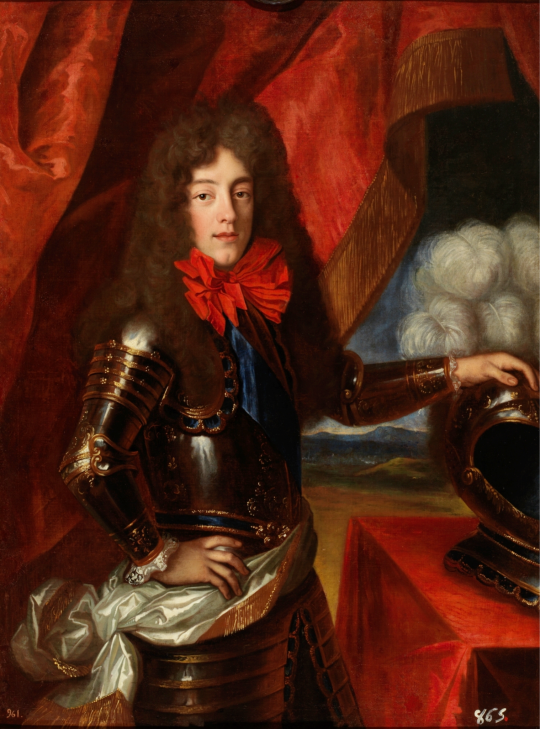
Louis III, duke of Bourbon (1668–1710). Unknown artist.
#museo del prado#royaume de france#maison de bourbon#louis iii#duc de bourbon#prince de conde#bourbon conde#kingdom of france#house of bourbon
2 notes
·
View notes
Photo

Louis II, Duke of Bourbon, known as the Good (1337-1410). By Luigi Rubio.
Louis II of Bourbon (1337-1410) was the eldest and only son of Peter I of Bourbon and Isabella of France. His father's death at the Battle of Poitiers made him Count of Clermont and the third Duke of Bourbon. His marriage to Anne of Auvergne made him Count of Forez and Lord of Mercœur.
#luigi rubio#royaume de france#maison de bourbon#louis de bourbon#louis ii#duc de bourbon#french aristocracy#maurice druon
10 notes
·
View notes
Text
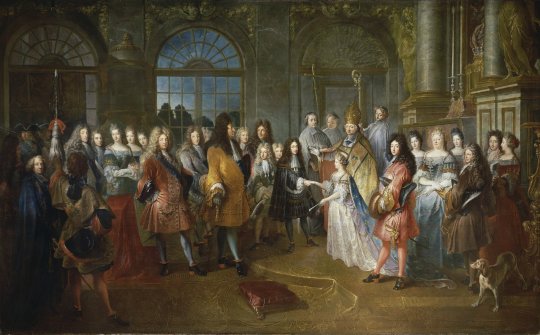
The marriage of the Duke of Burgundy to Marie Adelaïde of Savoy on December 7 1697 by Antoine Dieu.
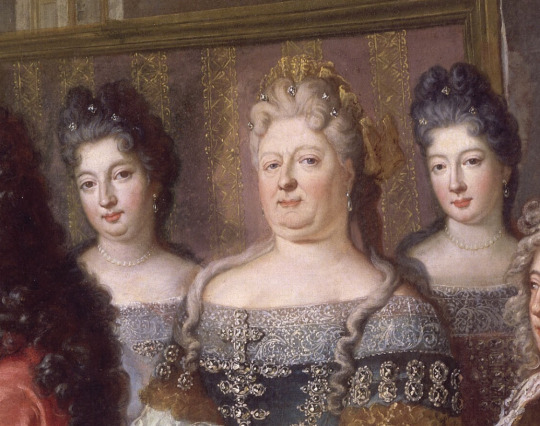
#visual#felipe v de españa#philippe duc d'anjou#philip v of spain#louis duc de bourgogne#le petit dauphin#charles duc de berry#bourbon#bourbon-anjou#louis xiv#philippe duc d'orléans#philippe d'orléans#louis de france#le grand dauphin#marie adelaïde of savoy#bourbon-orléans
3 notes
·
View notes
Text

"Louis Joseph Xavier de France, Duc de Bourgogne (Frère Aîné du Duc de Berry, Futur Louis XVI)" (1754), "Marie-Isabelle de Bourbon-Parme, Infante d'Espagne (Fille de la Duchesse de Parme)" (1749) et "Madame Sophie en Vestale (Fille Louis XV)" attribué à l'atelier de Jean-Marc Nattier (circa 1750) dans l'ancien "Cabinet des Glaces du Grand Dauphin" au Château de Versailles, septembre 2024.
#expos#deco#peinture#XVIIIe siècle#Bourbon#BourbonParme#Louis XV#LouisXVI#Nattier#Versailles#ChateauVersailles
4 notes
·
View notes
Text
- The one in which Gavroche encounters four almost Shakespearian ‘witches’. I don’t know why Hugo hates old women so much, and why he always makes Gavroche confront one or several of such women. If these ‘witches’ are meant to be parallels to those in Macbeth, there might be a prophesy involved. However, it turns out that Gavroche makes a prophecy for himself: “I give my days to my country, I shall never see my concubine more, Nini, finished, yes, Nini? But never mind! Long live joy! Let’s fight, crebleu! I’ve had enough of despotism.”
- Meanwhile, Hugo makes fun of the old women (three portresses, and one rag-picker): they are poor and miserable, but they still discuss their favourite potential kings from the past and present (the King of Rome, son of Napoleon, the Duc de Bordeau, a possible heir to the throne from the Bourbon house who was 12 in 1832, and Hapgood confused Louis XVIII for Louis XVII—it’s Louis XVII in original text, and it makes more sense in the context of their conversation). And then they complain about inflation, and the rag-picker boasts that she is not in the worst position because she has “a profession.” Probably, Hugo meant it to be funny, but it is not, as women had limited professional opportunities, and it is not fair to mock the most destitute among them. And it’s absolutely understandable that these women be anxious seeing a kid like Gavroche with a pistole in hand.
- Later, Gavroche becomes sad because of his useless pistole and a poor starving dog. It’s amazing that this hungry boy has enough emotions to feel compassion even for this wretched poodle.
14 notes
·
View notes